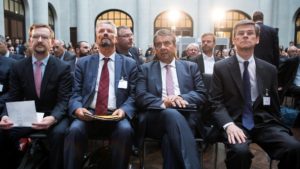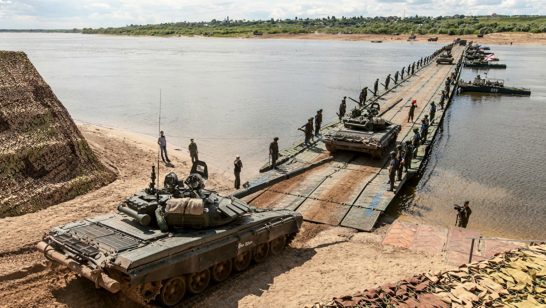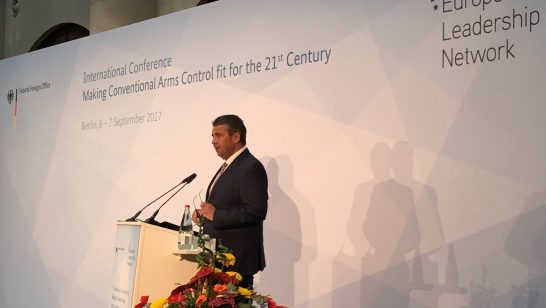
Conventional arms control in Europe is in a dire state, with many key agreements facing serious compliance issues that undermine the security of the continent. It is imperative that these agreements are assessed against their suitability for the 21st century, and that they are updated as needed or new agreements formulated to reintroduce a semblance of predictability and security to Europe. 
The European Leadership Network and the German Federal Foreign Office responded to this challenge by co-hosting a conference on Making Conventional Arms Control Fit for the 21st Century in Berlin on 6-7 September 2017. The conference brought together over 150 participants from the majority of OSCE participating States, representatives of the OSCE, NATO and other institutions, and members of the expert community. The list of speakers included German Foreign Minister Sigmar Gabriel, OSCE Secretary General Thomas Greminger, former NATO Deputy Secretary General Alexander Vershbow and German Federal Government Commissioner for Disarmament and Arms Control Patricia Flor.
The post-conference report is notable for its focus on workable solutions to the challenges. Whilst at the meeting there were many disagreements, accurately reflecting the varied approaches and threat perceptions of particular capitals, participants were able to identify a number of workable policy recommendations suitable for immediate implementation by the OSCE states.
The report includes a list of specific recommendations, namely:
- The need to define shared interests as a basis for progress
- The need to build trust through dialogue and deeds
- Immediate focus on managing the risks of confrontation
- The necessity to establish undisputed facts and figures through the Structured Dialogue’s Mapping Exercise
- Work towards multilateral and additional bilateral instruments to deal with hazardous military incidents
- The need to examine the possibility of limiting certain types of military exercises, even for limited duration
- The imperative of saving the INF Treaty from collapse
- The necessity of initiating an in-depth dialogue about the impact of new military technologies on arms control arrangements
The opinions articulated above represent the views of the author(s), and do not necessarily reflect the position of the European Leadership Network or any of its members. The ELN’s aim is to encourage debates that will help develop Europe’s capacity to address the pressing foreign, defence, and security challenges of our time.



